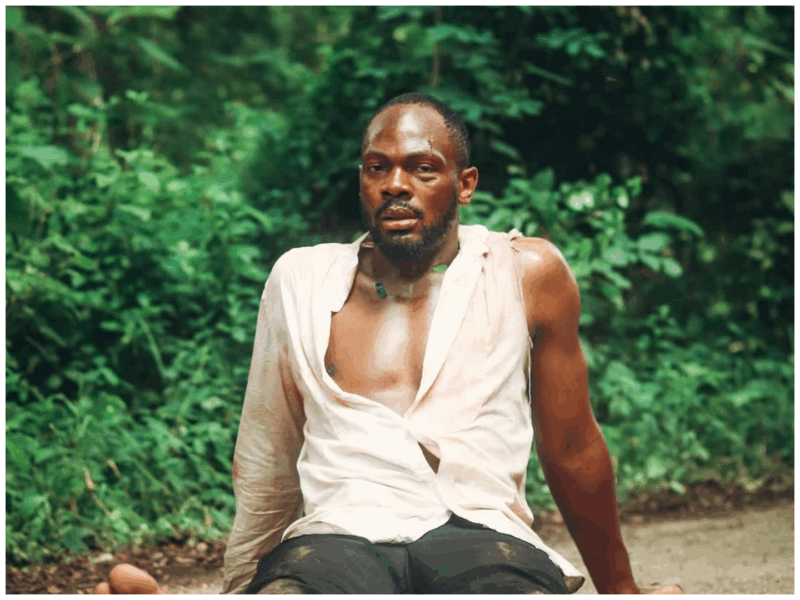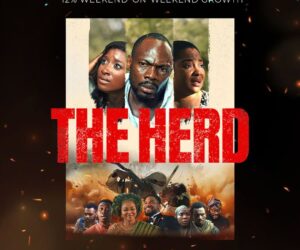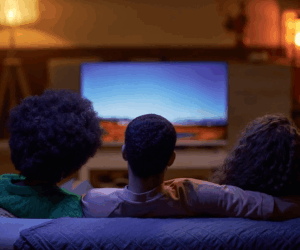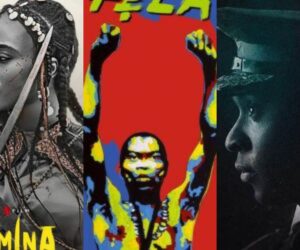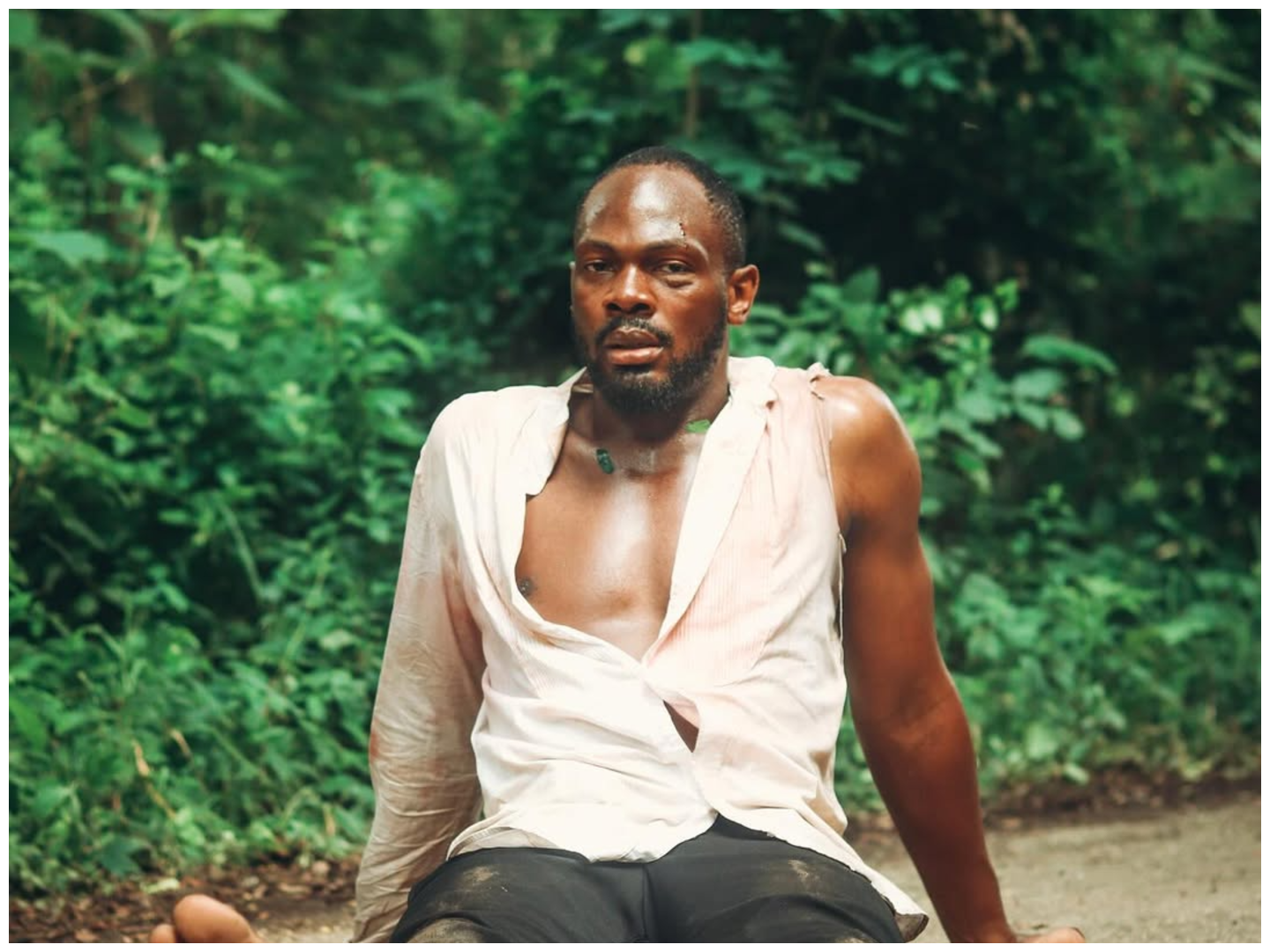
The film, which depicts a wedding party ambushed by gunmen disguised as cattle herders, has amassed over 30 million views. But its success has been shadowed by fierce backlash from the Arewa community, with some calling for Netflix boycotts and accusing the filmmakers of bigotry.
The irony is impossible to ignore: a movie about kidnapping has generated more visible outrage from Northern Nigerians on social media than the actual kidnappings ravaging their region.
What Is ‘The Herd’ About?
The Herd follows Gosi, who is privately dealing with his wife’s recurrent cancer scare, as he joins friends to celebrate their wedding. Things take a drastic turn when, on their way back to the hotel, they are kidnapped by gunmen disguised as cattle herdsmen.
The film captures a tense fight for survival, exploring themes of insecurity, betrayal, and the hidden forces destroying lives in Nigeria. What begins as a joyful celebration quickly descends into a nightmare of violence, ransom negotiations, and moral compromises.
The ‘criminals’ in the film include Hausa, Yoruba, and Igbo characters, a reminder that banditry is not an ethnic plague but a criminal economy.
The gang performs Islamic prayers when it suits them, yet murders innocents and trades in human body parts. A Yoruba pastor is complicit in the body parts trade, while the hero detective who helps rescue the victims is a Muslim from the North.
The movie was released in Nigerian cinemas on October 17, where it earned N47.1 million in its opening weekend and has grossed N166.2 million in over three weeks. Its subsequent Netflix release sparked the controversy that continues to divide Nigerian social media.
READ ALSO: Daniel Etim-Effiong Prays Before Kissing on Set and His Reasons Make Perfect Sense
The Arewa Community’s Grievances
The backlash came swiftly. Bashir Ahmad, former digital aide to ex-President Buhari, penned one of the most prominent critiques on X (formerly Twitter):
“The reason why some Arewa people are angry about The Herd movie is not that we are denying the reality of banditry, far from it. It is about the dangerous consequences of profiling an entire ethnic group and region that has already suffered immensely from years of insecurity.”
Ahmad’s main concern centres on stereotyping. He points to the film’s opening scene where Fulani herders cross the road with cattle, then suddenly pull out guns and begin shooting indiscriminately. “This single scene paints a picture that is actually facile as it is dangerously inaccurate,” he wrote.
He acknowledges that some bandits are indeed Fulani, but argues that “the overwhelming majority of Fulani herders are innocent and also among the very victims that have suffered the most from these terrorists. Many have lost their cattle, their livelihoods and their families.”
Another user, @Nicegirljojo, expressed exhaustion with how Islam and Arewa are portrayed: “Just finished watching ‘The Herd’ and honestly? I’m tired. The way Islam and Arewa keep getting painted in the darkest light is exhausting. Yes, these things happen, but the constant one-sided portrayal isn’t helping anyone. Muslims deserve better storytelling than this.”
The core of their argument is this: while the film depicts real crimes, it reinforces harmful stereotypes that fuel discrimination against innocent people.
They fear that international audiences will walk away believing every Fulani herder is a terrorist, deepening existing stigma and potentially inciting violence against innocent communities.
ALSO READ: Terrorists Attack Catholic School in Niger; Students, Staff Abducted
Just finished watching “The Herd” and honestly? I’m tired. The way Islam and Arewa keeps getting painted in the darkest light is exhausting. Yes, these things happen, but the constant one-sided portrayal isn’t helping anyone. Muslims deserve better storytelling than this.
— 𝙟𝙤💕 (@Nicegirljojo) November 21, 2025
Reality Cannot Be Ignored
The response to these criticisms has been swift and, at times, brutal. Many Nigerians are asking: when did telling the truth become bigotry?
One user cut straight to the heart of the matter: “Do you know that the movie ‘The Herd’ generated more outrage from northerners on this app than the insecurity ravaging the region? Foolish, stinking hypocrites!!!”
This sentiment echoes across Nigerian social media. People are pointing out that while “The Herd” is trending with angry responses, the actual kidnappings happening in real-time receive far less vocal opposition from the same community.
And the timing couldn’t be more stark.
Do you know that the movie “the herd” generated more outrage from northerners on this app than the insecurity ravaging the region?
Foolish, stinking hypocrites!!!— Abu Amir (@SadiqMaunde) November 24, 2025
The Reality: Kidnappings Are Happening
On November 18, 2025, just days before The Herd premiered on Netflix, gunmen attacked Government Girls Comprehensive Secondary School in Kebbi state’s Maga town, abducting 25 schoolgirls and killing the school’s vice principal. The attackers scaled the fence, exchanged gunfire with police, and seized the girls before dawn.
One girl managed to escape and return home, but 24 others remain missing. Mass school kidnappings are especially common in northern Nigeria, and the Kebbi school is close to conflict hot spots, including Zamfara and Sokoto states, where several gangs operate and hide out.
This attack came less than a week after the Kebbi kidnapping. Authorities in nearby Katsina and Plateau states ordered all schools to close as a precautionary measure.
This is the reality The Herd depicts. Not exaggeration. Reality.

